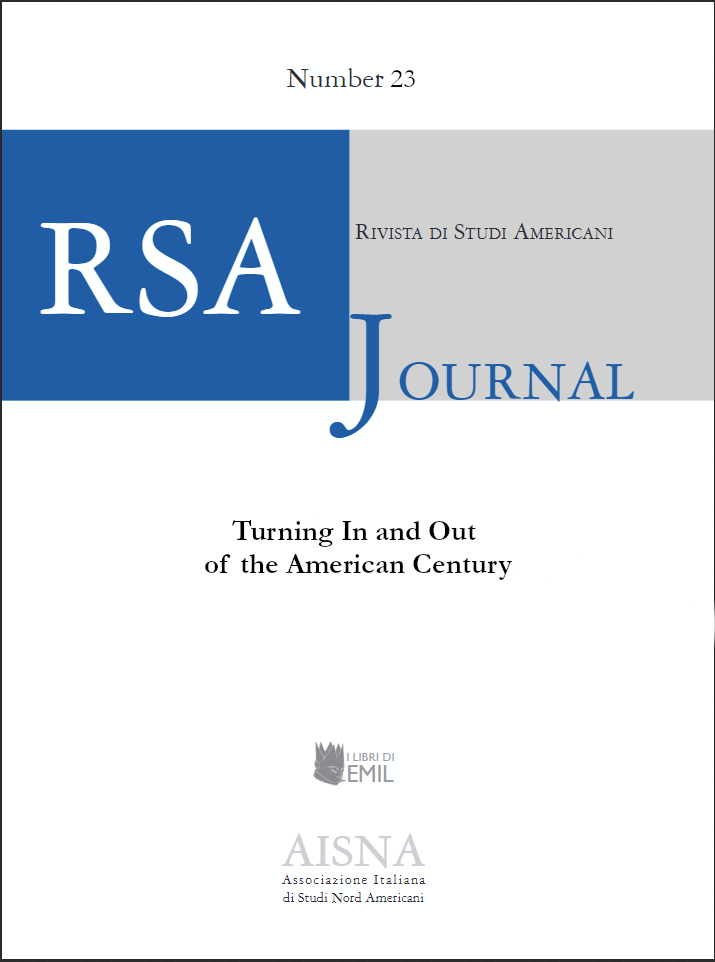Contemporary American Immigrant Literature
DOI:
https://doi.org/10.13135/1592-4467/8710Parole chiave:
immigrant literature, contemporary literature, American literatureAbstract
Since the 1965 Hart-Cellar Immigration Act, which abolished the national quota system set in place by the Johnson-Reed Act of 1920, more than 20 million immigrants have entered the United States, half of whom arrived during the 1980s, mostly from countries in Asia, Latin America, and Africa. The new literature of immigration therefore deals with experiences of people who are not of European descent; it engages with American discourses of race as these intertwine with those of home countries and challenges the traditional focus in immigrant texts on the process of assimilation. Quite often this literature blurs the distinction between “immigrant” and “exile.” Focusing on Junot Díaz’s Drown (1996), The Brief Wondrous Life of Oscar Wao (2007), Dinaw Mengestu’s The Beautiful Things that Heaven Bears (2007), and two earlier texts, Henry Roth’s Call It Sleep (1934), a classic immigrant narrative, and Vladimir Nabokov’s Pnin (1953), a text that is rarely discussed as an immigrant narrative per se, I explore significant shifts in the tropes and aesthetic form of recent American immigrant fiction.
##submission.downloads##
Pubblicato
Fascicolo
Sezione
Licenza
Avviso sul Copyright
RSAJournal applica una licenza CC BY-NC-ND a tutti i suoi contributi. Questa licenza consente agli utenti di copiare e distribuire il materiale in qualsiasi supporto o formato solo in forma non adattata, per scopi non commerciali e a condizione che venga esplicitato/a l'autore/autrice dell'opera. CC BY-NC-ND include i seguenti elementi:
- BY: L'autore deve essere riconosciuto come tale.
- NC: Sono consentiti solo utilizzi non commerciali dell'opera.
- ND: Non sono consentite opere derivate o adattamenti dell'opera.
Gli autori che pubblicano con questa rivista accettano i seguenti termini:
- Gli autori conservano il copyright e tutti i diritti di pubblicazione per i loro contributi alla rivista.
- Gli autori concedono alla rivista il diritto di prima pubblicazione in base alla licenza internazionale Creative Commons Attribution-NonCommercial-NoDerivatives 4.0, che consente ad altri di condividere l'opera non modificata per scopi non commerciali a condizione che venga esplicitato/a l'autore/autrice dell'opera e la sede di pubblicazione iniziale (questa rivista).
- Gli autori sono in grado di stipulare accordi contrattuali separati e aggiuntivi per la distribuzione non esclusiva della versione pubblicata dalla rivista (ad esempio, per inserirla in una repository istituzionale o pubblicarla in un libro), con l'indicazione che il contributo è stato precedentemente pubblicato in RSAJournal.




